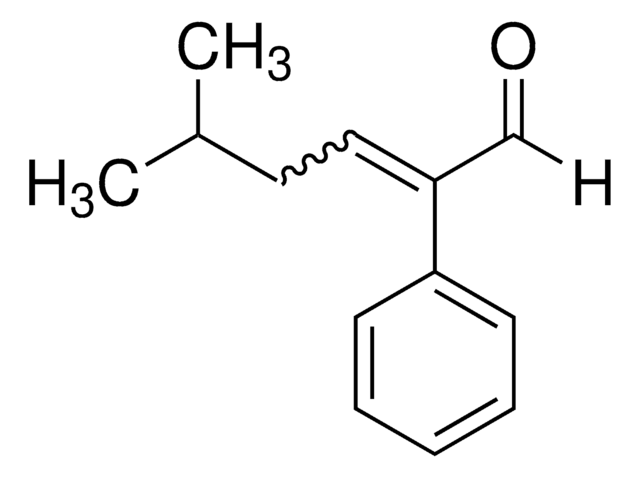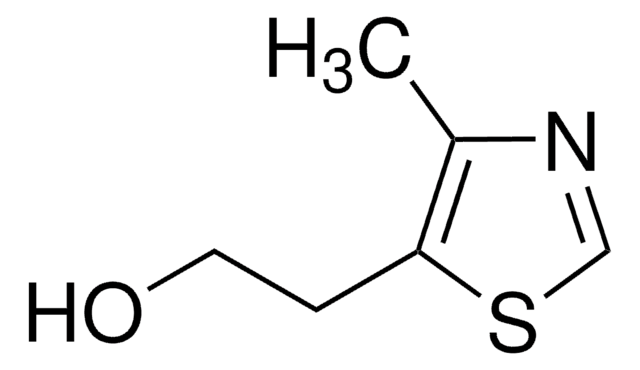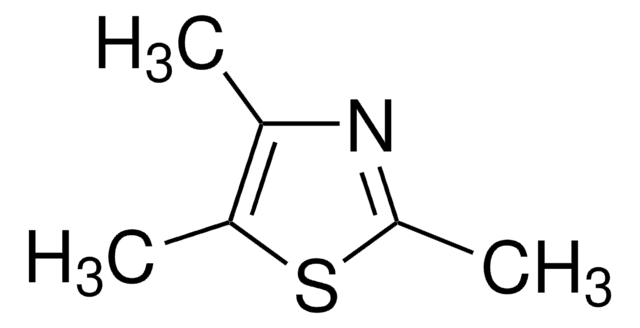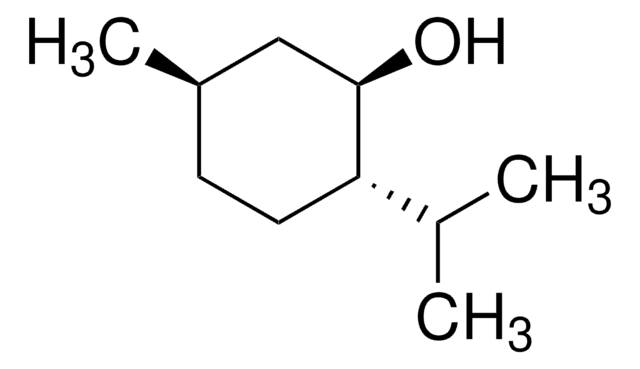W319902
5-Methyl-2-phenyl-2-hexenal
≥96%, FG
Synonym(s):
cocoa hexenal
About This Item
Fragrance grade
Halal
Kosher
meets purity specifications of JECFA
Recommended Products
biological source
synthetic
Quality Level
grade
FG
Fragrance grade
Halal
Kosher
Agency
follows IFRA guidelines
meets purity specifications of JECFA
reg. compliance
EU Regulation 1223/2009
EU Regulation 1334/2008 & 178/2002
vapor density
>1 (vs air)
Assay
≥96%
refractive index
n20/D 1.534 (lit.)
density
0.973 g/mL at 25 °C (lit.)
application(s)
flavors and fragrances
Documentation
see Safety & Documentation for available documents
food allergen
no known allergens
fragrance allergen
no known allergens
Organoleptic
bitter; chocolate; cocoa
SMILES string
[H]C(C(C1=CC=CC=C1)=CCC(C)C)=O
InChI
1S/C13H16O/c1-11(2)8-9-13(10-14)12-6-4-3-5-7-12/h3-7,9-11H,8H2,1-2H3
InChI key
YURDCJXYOLERLO-UHFFFAOYSA-N
Related Categories
Application
- Characterization of aroma active volatile components in roasted mullet roe.: This study identifies 5-Methyl-2-phenyl-2-hexenal as a key component contributing to the distinctive aroma profile of roasted mullet roe. This research provides insights into flavor science and the role of volatile compounds in food aroma, helping enhance product development in the food industry (Fang M et al., 2022).
- A 90-day subchronic toxicity study of 5-methyl-2-phenyl-2-hexenal in F344 rats.: This toxicological evaluation assesses the safety of 5-Methyl-2-phenyl-2-hexenal, providing essential data for its use in various consumer products. Understanding its toxicological profile helps ensure safety in its application, crucial for regulatory approval and consumer safety (Ogawa K et al., 2021).
- 5-Methyl-2-phenyl-2-hexenal in the scent gland secretion of male cave crickets, Troglophilus cavicola and T. neglectus (Ensifera: Rhaphidophoridae).: Describes the presence of 5-Methyl-2-phenyl-2-hexenal in the scent glands of cave crickets, suggesting its role in chemical communication and possibly in mating behavior. Such studies enhance our understanding of animal behavior and pheromone-based communication systems (Leis HJ et al., 1998).
Signal Word
Warning
Hazard Statements
Precautionary Statements
Hazard Classifications
Eye Irrit. 2 - Skin Irrit. 2 - Skin Sens. 1
Storage Class Code
10 - Combustible liquids
WGK
WGK 2
Flash Point(F)
235.4 °F - closed cup
Flash Point(C)
113 °C - closed cup
Personal Protective Equipment
Regulatory Listings
Regulatory Listings are mainly provided for chemical products. Only limited information can be provided here for non-chemical products. No entry means none of the components are listed. It is the user’s obligation to ensure the safe and legal use of the product.
FSL
Group 4: Flammable liquids
Type 3 petroleums
Hazardous rank III
Water insoluble liquid
JAN Code
W319902-VAR-K:
W319902-100G-K:
W319902-1KG-K:4548173975832
W319902-250G:
W319902-100G:
W319902-SAMPLE:
W319902-5KG:
W319902-5KG-K:4548173975856
W319902-1KG:
W319902-SAMPLE-K:
W319902-250G-K:4548173975849
W319902-BULK-K:
Choose from one of the most recent versions:
Already Own This Product?
Find documentation for the products that you have recently purchased in the Document Library.
Customers Also Viewed
Our team of scientists has experience in all areas of research including Life Science, Material Science, Chemical Synthesis, Chromatography, Analytical and many others.
Contact Technical Service








